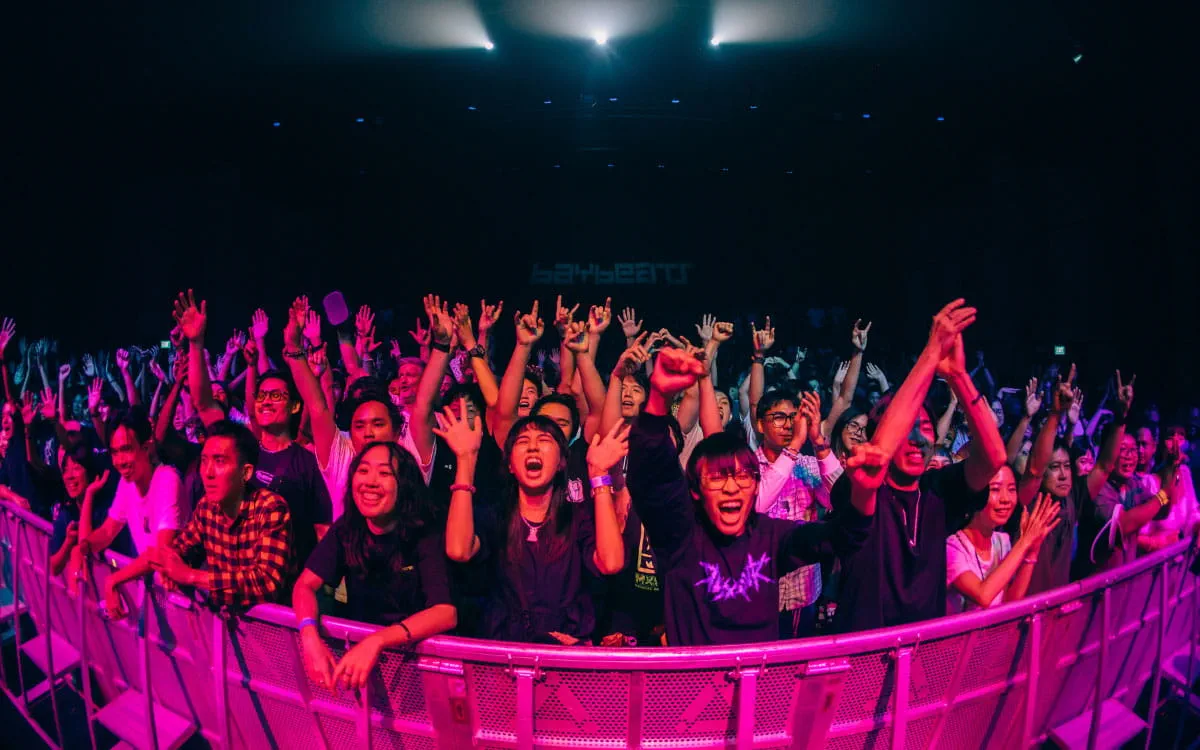Last year, the hottest talent show on TV (well, online), was undoubtedly iQiyi’s Rap of China. But after the contest’s runaway success came a swift downfall, as an apparent government edict declared that “SAPPRFT [the ministry in charge of such things] requires that artists with tattoos, hip-hop music, sub-culture (non-mainstream culture) and depressed culture (decadent culture) can not be on any shows.”
 Rapper GAI Abruptly Removed from Reality Show Following Reported New Hip Hop BanArticle Jan 20, 2018
Rapper GAI Abruptly Removed from Reality Show Following Reported New Hip Hop BanArticle Jan 20, 2018
So what have iQiyi done to fill the gaping hole in their schedule? Well, one of the answers appears to be that they’ve turned to “street dancing”.
Last Saturday, the Baidu-backed streaming platform launched Hot Blood Dance Crew, a street dance battle show that pits crews of beanie- and baseball shirt-wearing kids against each other in dance-offs.
It seems like a smart gambit to attract the erstwhile Rap of China audience while not falling foul of the authorities’ guidelines. Except that they didn’t get there first. Three weeks ago, video streaming rival Youku unveiled Street Dance of China, a street dance battle show that pits beanie- and baseball shirt-wearing individuals against each other in dance-offs:
Before airing at the weekend, the official Weibo account for Youku’s offering, which is sponsored by e-commerce platform Tmall, and produced by Giant Jump Entertainment and Paul Edward Production, alluded to the street dance battle battle by posting “Been waiting so long. See you later at 8pm” and tagging Hot Blood Dance Crew in the message.
Street Dance of China has been pulling out all the stops to get the most clicks. The show has invited big name pop stars including Jackson Yi (one of the three members of TF BOYS, pictured up top), Han Geng, Tao Huang, and Show Lo to appear as regular guests.
As entertaining as the dancers’ moves have been (my personal favorite is the popping dancer Dino, who showed up in the latest episode), the show has been mostly attracting attention for a series of mistakes. The official account of Paul Edward production apologized in the run up to the show launching after they misspelt Jackson’s name in promotion material.
After the second episode aired, they were forced to apologize once more due to a misleading edit of a quote by Tao on the show. Given their reported marketing resources of 600 million RMB, SDC really needs to be more careful to avoid a backlash. Especially now that they’re doing battle with iQiyi’s rival show.

HBDC‘s launch has been comparatively smoother – and seen better viewing figures (140 million for the first episode, compared to SDC‘s 63.5 million). Two K-pop super stars Luhan and Jackson Wang have teamed up versus Victoria Song and William Chan, who can really dance as well. Their opening moves with top choreographers such as Rie Hata, Galen Hooks, Miguel Zarate and Dee, looked a lot more complete and professional than those on Youku’s show.
Production values in general are high. The rival crews’ dances took place in the “City of Hot Blood”, an elaborate set designed and built by nearly 2,000 people. Considerable resources have clearly been thrown at the show, and the team behind it includes many of the key figures involved with Rap of China: producer Chen Wei, director Che Che and music director Liu Zhou.
The show also appears to have done a good job in reaching out to existing street dance enthusiasts in China. In the first episode, some of the country’s (relatively) well-established dance crews – such as Wujiawu, Zaha Sugar, RMB, T.I, and CASTER – danced their way through various styles, from popping and jazz to urban and “swag” before being selected by the team leaders.
Will street dance burst into the mainstream in China like hip-hop music did? Will street dancing end up getting “banned”? And which of these ambitious variety shows will win the ratings battle? We’ll be watching closely to find out.
You might also like
 The Rap of China Exposes Generational Fault Lines Among Chinese YouthArticle Sep 19, 2017
The Rap of China Exposes Generational Fault Lines Among Chinese YouthArticle Sep 19, 2017
 China’s Smallest Hip Hop Dance Champ is the Raddest Thing You’ll See TodayArticle Jul 25, 2017
China’s Smallest Hip Hop Dance Champ is the Raddest Thing You’ll See TodayArticle Jul 25, 2017


















